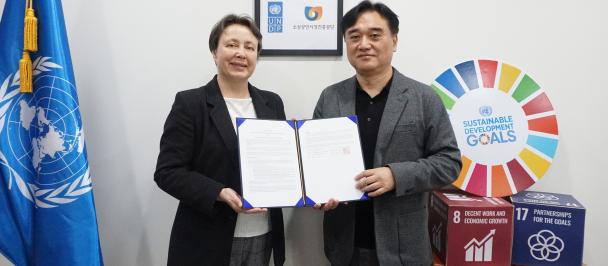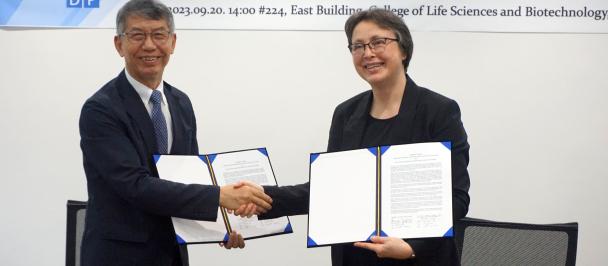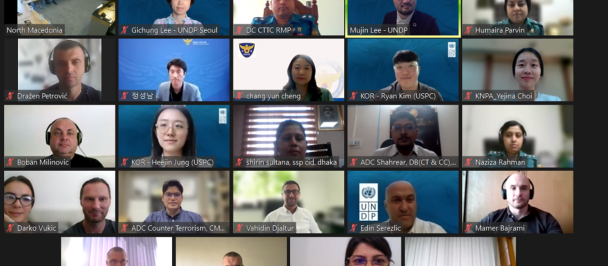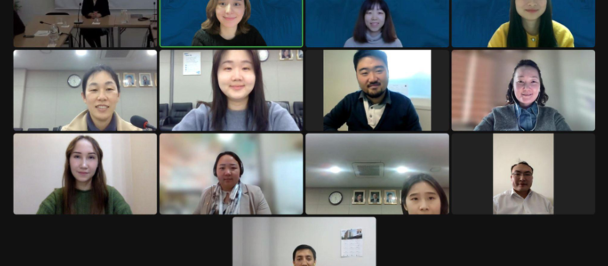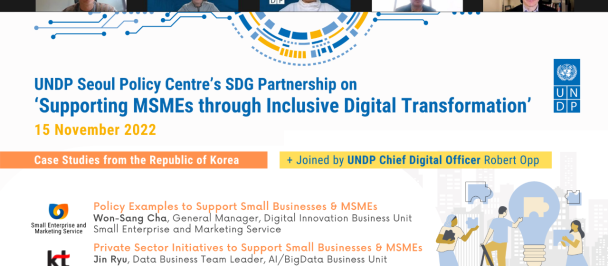최신 UNDP 법치 및 인권 보고서에 UNDP 서울정책센터의 젠더기반폭력 대응 프로젝트 소개
2022년 6월 22일
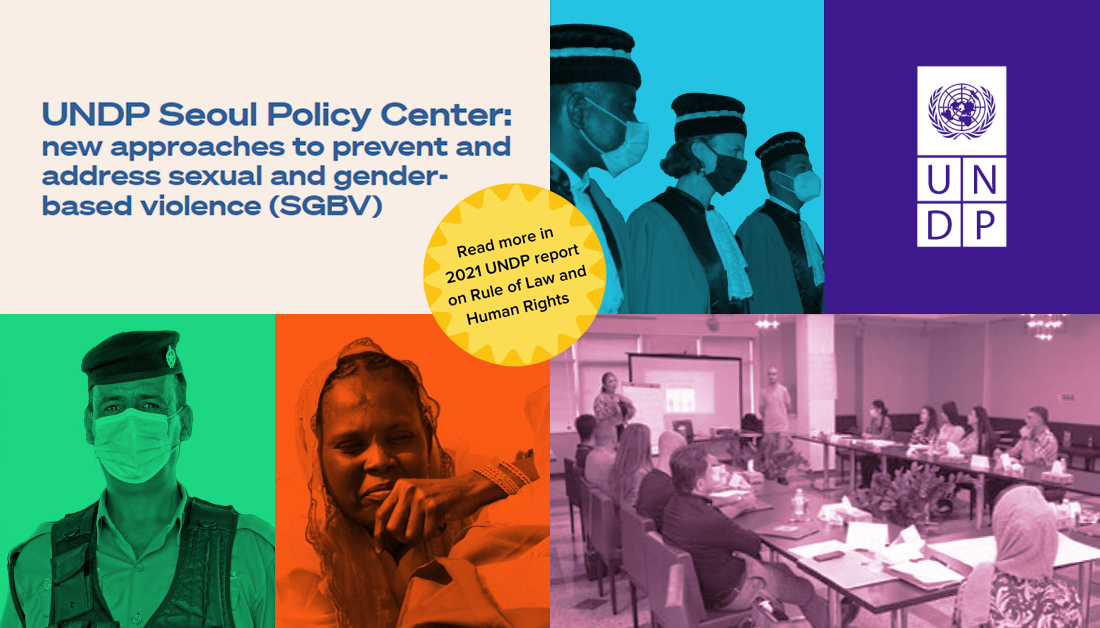
UNDP 서울정책센터는 지난 몇 년간 UNDP의 법치 및 인권 관련 글로벌 프로그램(UNDP’s Global Programme on Rule of Law and Human Rights)과 협업하여 파트너 국가들에게 전략적 지식 공유의 기회와 종자 자금을 지원하며 센터의 ‘성폭력 및 젠더기반폭력(SGBV) 대응 관련 SDG 파트너십’ 프로젝트를 진행해 왔다.
대한민국의 해바라기 센터 모델과 경찰의 SGBV 관련 역량강화 조치, 생존자 중심 진술 확보 지침 등의 경험을 참고하여, 본 협력이 각 파트너국에 실질적인 효과를 창출한 내용이 UNDP의 2021 법치 및 인권 연례보고서 (2021 Rule of Law and Human Rights Annual Report)에 수록되었다.
보고서 발췌문(영문):
UNDP Seoul Policy Center: new approaches to prevent and address sexual and gender-based violence (SGBV)
Over the last few years, the cooperation between the Global Programme and UNDP Seoul Policy Centre (USPC) shifted from ad hoc technical support and networking with international partners specialized in policing and addressing violence against women and girls, to a more strategic and longer-term partnership. In 2021, in addition to the joint events, strategic and technical discussions became regular to better synchronize seed fundings from the Global Programme and USPC at the country level so that the programmes are complementary and mutually reinforcing.
UNDP, through its Policy Centre in Seoul, Republic of Korea, has provided strategic knowledge-sharing and seed funding support to a select number of countries (Albania, Argentina, Democratic Republic of the Congo, Indonesia, Iraq, Kazakhstan, Kyrgyz Republic, Lebanon, Liberia, Senegal and Zimbabwe) to inspire and innovate measures to change the perception of public service providers and to improve service delivery mechanisms for victims of sexual and gender-based violence (SGBV), so that victims can access help without fear of secondary victimization.
The first point of reference is Korea’s award-winning ‘Sunflower Center’, an integrated one-stop service model that delivers medical, investigation, counselling and legal support in a single location with 100 percent government funding, providing an integrated service to SGBV survivors in an effective and sustainable manner.
In Indonesia, the UNDP Country Office and the Seoul Policy Centre worked with the city government, public health and social authorities, and the police force to create the Indonesian adaptation of Korea’s Sunflower Center, leading to the establishment of the Integrated Service Centre (Pusat Pelayanan Terpadu (PPT) Bunga Tanjung within the premises of public hospitals in Jakarta.
Inspired by the Korean model, PPT Bunga Tanjung secured strong government ownership with 100 percent public funding. Hence, even in times of COVID-19, the integrated service centre continued to operate in support of SGBV survivors. PPT Bunga Tanjung was also recognized as one of the top public service innovations in Indonesia. The government of Indonesia is taking this innovation to the national level, planning to introduce the so-called ‘movable PPT’ - a compact version of the one-stop service centre for SGBV survivors built in a 40-foot container, to be dispatched to remote provinces and hospitals across the country, so that services can be provided even with limited infrastructure.
This work further led to policy-level impact. UNDP’s advocacy and capacity building activities resulted in a Decree Letter issued by the Health Office of Special Capital Region (Daerah Khusus Ibukota (DKI) Jakarta, benefiting 32 regional hospitals in the province and over 500 public service providers from three different offices, namely the Women Empowerment and Child Protection Office of DKI Jakarta Province, the Health Office of DKI Jakarta Province and the Directorate of Criminal Investigation of Jakarta Metropolitan Police. The project also developed a new Monitoring and Evaluation (M&E) framework for accessing and understanding the efficiency and performance of the one-stop service centres, with particular consideration for children and persons with disabilities. It also allows for accountability and transparency in the management structure, thereby further inspiring a sustainable and transformative change in Indonesia’s health sector and affected populations at large.
The second point of reference is that the Seoul Policy Centre has been utilizing knowledge sharing with the Korean National Police Agency and the Korean National Police University as a vehicle to inspire and support police capacity building efforts in partner countries.
Given the critical role of the police as the immediate service provider for SGBV survivors, the work focused on sharing the Korean police’s experience with SGBV-related capacity building measures and survivor-centred interview protocols for SGBV investigations. In Iraq, for instance, the interview protocol of the Korean Police was introduced to Iraqi security and justice actors.
The example has greatly contributed to raising awareness and building the capacity of Iraqi police officers – the GBV squad based in Erbil in particular – stimulating further implementation of the Gender Equality Strategy by the Joint Coordination Committee (JCC) and the Ministry of Interior in the Kurdistan Region of Iraq that aim to encourage women’s participation in crisis response. In 2021 alone, 63 police, Directorate of Combating Violence Against Women, and JCC employees were trained on GBV response through the four trainings and capacity building sessions that were conducted in Erbil, Dohuk and Sulaymaniyah. To create a pool of trainers for the next generations of police officers, a training of trainers was also conducted for 15 attendees in Erbil.
In Zimbabwe, knowledge sharing activities with the Korean Police led to the conceptualization, development and implementation of a national call centre for the Zimbabwe Republic Police featuring manuals and policies to enhance access to justice for GBV survivors.
In 2022, the Seoul Policy Centre is launching a new area of work, which focuses on police capacity building for tackling digital sex crimes, which will utilize the knowledge-sharing activities with the Korean Police to inspire and innovate measures in partner countries for fighting and preventing sexual crimes in cyber space, which have been on the rise since COVID-19 has accelerated digitalization processes around the world with its risks as well as opportunities.
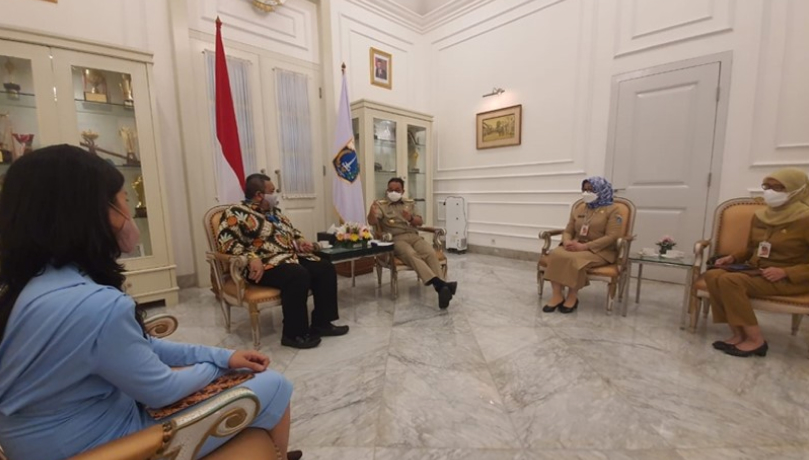
Meeting with the Governor of Special Capital Region (DKI) Jakarta and the Head of Health Office to discuss UNDP-supported GBV prevention activities in 2021.
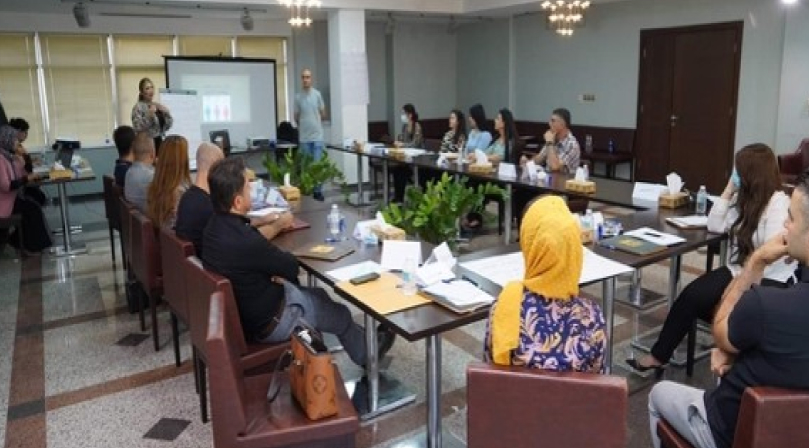
Based on the SGBV training modules of the Korean National Police, UNDP Iraq localized the context and provided trainings on SGBV interview protocols for police officers and the security sector in Sulaymaniyah, Iraq, in August 2021. The event contributed to gender sensitization of security and police forces in their SGBV response.

 Locations
Locations